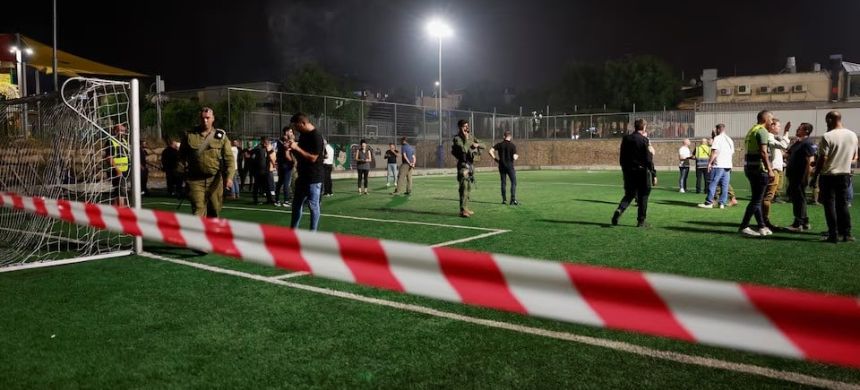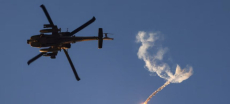A rocket attack on a football ground in the Israeli-occupied Golan Heights killed 12 people, including children, on Saturday. Israeli authorities blamed Hezbollah for the strike and vowed severe retaliation against the Iran-backed Lebanese group.
Hezbollah, however, denied responsibility for the attack, which is the deadliest in Israel or Israeli-annexed territory since the Gaza conflict began. The strike significantly escalated tensions and raised fears of a full-scale conflict between the two adversaries.
The rocket hit a football pitch in the Druze village of Majdal Shams, territory captured from Syria by Israel in the 1967 Middle East war and later annexed, a move not recognized by most countries.
“Hezbollah will pay a heavy price, the kind it has thus far not paid,” said Prime Minister Benjamin Netanyahu in a call with the leader of the Druze community in Israel.
Hezbollah stated, “The Islamic Resistance has absolutely nothing to do with the incident, and categorically denies all false allegations in this regard.” Despite this, Hezbollah announced several rocket attacks targeting Israeli military positions earlier.
The Israeli ambulance service reported that 13 more people were wounded by the rocket that hit the soccer pitch, which was filled with children and teenagers at the time.
Witness Mourhaf Abu Saleh described the scene: “They were playing soccer, they heard sirens, they ran to shelter… but they couldn’t reach the shelter because the rocket hit the site between the ground and the shelter.”
Footage posted on social media showed the moment of impact, with an air raid siren followed by a big explosion and smoke rising. Reuters confirmed the location using satellite imagery.
Idan Avshalom, a medic with the Magen David Adom ambulance service, described the scene as one of great destruction with casualties on the grass.
Netanyahu, already due to return from the United States, said he would expedite his flight and convene his security cabinet upon arrival.
The United States condemned the attack, calling it horrific and reaffirmed its unwavering support for Israel’s security against all Iranian-backed terrorist groups, including Hezbollah.
The Israeli military said the rocket was launched from an area north of the village of Chebaa in southern Lebanon and identified it as an Iranian-made Falaq-1. Hezbollah had earlier announced firing a Falaq-1 missile at an Israeli military headquarters.
Israeli military spokesperson Rear Admiral Daniel Hagari, speaking in Majdal Shams, indicated that there was no change in Home Front Command instructions, suggesting the army did not anticipate imminent escalation.
Finance Minister Bezalel Smotrich, a member of Netanyahu’s far-right coalition, called for tough retaliation, including against Hezbollah’s leader, Sayyed Hassan Nasrallah.
The conflict has forced tens of thousands of people to leave their homes in both Lebanon and Israel. Israeli strikes have killed approximately 350 Hezbollah fighters in Lebanon and over 100 civilians, including medics, children, and journalists.
The Israeli military reported that the death toll among civilians killed in Hezbollah attacks had risen to 23 since October, along with at least 17 soldiers.
UNIFIL spokesperson Andrea Tenenti stated that their force commander was in contact with authorities in both Lebanon and Israel to understand the details of the Majdal Shams incident and maintain calm.
The attack followed an Israeli strike in Lebanon that killed four militants. At least one of them belonged to Hezbollah. Israeli aircraft targeted a military structure belonging to Hezbollah after identifying a militant cell entering the building.
In response, at least 30 rockets were fired from Lebanon across the border, with Hezbollah claiming at least four attacks, including with Katyusha rockets, in retaliation for the Kfarkila attacks.











